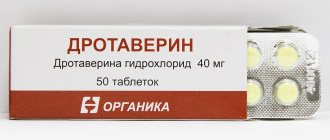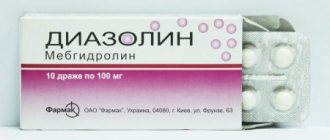Otipax is a drug released for the treatment of diseases of the hearing organs, including otitis media. The main components are lidocaine and phenazone. The drug has an analgesic and antibacterial, as well as anti-inflammatory effect.
The drug is not an addictive drug and does not belong to the group of antibiotics. Otipax is instilled into the ears, 3-4 drops 2 or 3 times a day. The medication should be at room temperature at the time of administration. The course of treatment does not last more than 11 days.
Drops are not used if the integrity of the membranes is damaged. The manufacturer indicates a possible negative effect of treatment - allergies, hyperemia. Shelf life after opening is no more than six months, storage temperature should not exceed 30 degrees (avoid direct sunlight).
What is otitis media and how to treat it
Otitis usually occurs when an infection enters the ear as a result of a complication after a cold or rhinitis. The fact is that bacteria from the nasal passages enter the Eustachian tube and begin their activity there. They provoke inflammation of the eardrum and ear canal, which causes pain.
Most often, otitis media is accompanied by the following symptoms:
- ear pain is the very first sign of the disease;
- temperature increase;
- general weakness of the body;
- headaches and dizziness;
- feeling of ear fullness;
- refusal to eat.
Painful sensations during otitis may intensify in the evening and at night, and have a pulling or pulsating character. This may be accompanied by discharge from the ear and redness of the skin.
Action and safety of Otipax drops for pregnant women
At the first signs of ear disease, a woman should consult a doctor. Not all drugs can be used during pregnancy: the active substances are absorbed into the bloodstream and pass through the placental barrier to the fetus, causing negative consequences for its development. One of the medications approved for use by expectant mothers is Otipax ear drops.
During the period of bearing a baby, a woman needs to be extremely careful in choosing medications. The doctor will carefully study the symptoms of the disease, make the correct diagnosis and select an effective and safe remedy.
Otipax is a combination drug containing two active ingredients:
- lidocaine is an anesthetic that blocks pain;
- phenazone is an anti-inflammatory component that quickly relieves swelling and redness at the site of application.
The drug acts only locally and is not absorbed into the blood. According to the instructions, Otipax drops can be prescribed in any trimester of pregnancy without risk to the fetus.
Treatment regimen for the disease
Different types require different medications for treatment. In addition, the duration of pregnancy is taken into account - the most dangerous for the health of the unborn child is the first trimester, when the formation of the main organs and systems occurs. During this period, only the least toxic drugs are allowed to be used. Exceptions are cases when refusal of treatment threatens the life of the mother (this can happen with some forms of purulent otitis).
For otitis media of the middle ear, not complicated by perforation of the membrane (non-purulent form), Otipax ear drops are prescribed to treat inflammation. This is one of the few drugs for the treatment of otitis media, the use of which is safe during pregnancy. It helps relieve pain and relieve inflammation.
In case of purulent form, the use of Otipax is prohibited, no matter how safe it may be. If the membrane is perforated, antibacterial drugs are necessary. The least dangerous drugs for the fetus are Amoxicillin and Biseptol, as well as them. However, in the first trimester of pregnancy, their use still poses some threat to the health of the fetus.
For otitis externa (pain in the auricle), drops with hydrocortisone are used, which does not have a toxic effect on the fetus. In addition, it is possible to combine drops with traditional recipes for the treatment of otitis media and physiotherapy. Additionally, the doctor may prescribe decongestants to normalize the lumen of the Eustachian tube.
It is important to understand that starting treatment is possible only after an accurate diagnosis has been established. You should not use any traditional methods of treating otitis before going to an otolaryngologist - in purulent forms of the disease, this can cause the spread of pathogens in the body and increased inflammation.
Is plaque on the lips in the morning dangerous and how to deal with it?
In what cases can a doctor prescribe Otipax?
Symptoms of otitis media cause a lot of inconvenience to a pregnant woman, but doctors do not recommend starting treatment with medications on their own. After all, the degree of the disease and its localization can be different: acute or chronic inflammation, damage to the outer, middle or inner ear. Otipax cannot be used if the eardrum is perforated (ruptured). Only a specialist will make the correct diagnosis and select the necessary treatment regimen.
Otipax is not a drug with antibacterial action. The main task of its components is to eliminate pain symptoms and relieve inflammation. Depending on the diagnosis and extent of the infection, doctors prescribe drops as part of complex therapy with other medications.
Otipax is used in the following cases:
- at the initial stage of external ear disease;
- with otitis media;
- in case of inflammation as a complication after suffering from influenza or a cold;
- with barotraumatic otitis: a situation when, during a flight or diving under water to great depths, strong pressure is generated on the eardrums.
Recommendations for use
The recommended dose and maximum time of use of the drug for a pregnant woman is determined by a qualified doctor. According to the instructions, Otipax is instilled into the external auditory canal, 3-4 drops 2-3 times a day. The duration of therapy should not exceed 10 days.
In order to achieve the desired effect when treating with drops, you need to use them correctly.
- Doctors recommend warming the bottle of medicine in your hands to body temperature before use. Cold liquid entering the inflamed ear canal is undesirable.
- You need to lie on your side and slightly pull your ear up and to the side, then drip the required number of drops and remain in this position for 5–10 minutes. This is required so that the medicine reaches the site of inflammation in full.
- In the same way, it is necessary to put drops in the other ear if both hurt or the doctor recommended drops in the second ear for prevention.
Doctor's recommendations for treating otitis media - video
Disease prevention
Pregnant women definitely need special health care, especially those who have already had cases of otitis media. Immunity is not developed from this disease; rather, on the contrary, the chances of getting sick again become higher.
To avoid getting otitis media, you should avoid visiting crowded places during pregnancy, especially during periods of seasonal exacerbation. In case of illness, it is necessary to promptly and efficiently treat the infection in order to prevent complications. Ears should be kept warm in winter by wearing a hat or hood.
It is also necessary to maintain good ear hygiene (do not use traumatic cleaning methods and do not clean your ears too often). It is important to avoid getting water in your ears when showering, swimming, or visiting the pool. If you have any symptoms of otitis media, you should immediately visit a doctor.
Sometimes hearing loss in a pregnant woman is not a symptom of the development of the disease. This is due to the normal physiological process of swelling of the mucous membranes due to fluid retention in the body. Due to the narrowing of the Eustachian tube, hearing may deteriorate. However, excess fluid can also serve as a provoking factor for the development of otitis media, so diagnosis is still necessary.
In order to prevent the development of otitis, it is enough to follow the measures that fit into the recommendations for. It is enough for a pregnant woman to monitor their implementation, because... During this period, her immunity decreases.
Dec 20, 2020 Violetta Lekar
Probably, everyone who has experienced the “delights” of the inflammatory process of the ears is horrified at the mere mention of otitis media. This is not surprising, since the severe pain associated with this disease is one of the most serious. As usual, this disease is treated comprehensively, using medications and various non-medicinal methods. But what to do if this disease is diagnosed in a woman who is carrying a baby under her heart.
Let's take a closer look at how to treat otitis media in pregnant women, when the choice of permitted medications is not so wide. And most importantly, what therapy in this case will be most effective for the expectant mother and at the same time safe for the child.
Experts classify otitis media as an inflammatory lesion of one of the parts of the human hearing organ, occurring in a chronic or acute form.
It depends on the location of the inflammatory process
:
The symptoms of otitis directly depend on it, however, there are general signs that indicate this disease. These include:
- pain and congestion in the ear;
- hearing impairment;
- headache.
Otitis media is a very serious disease that, without proper and timely treatment, can lead to irreversible hearing loss, meningitis, inflammation of the temporal bone and other consequences.
That is why, if you detect the slightest signs of this disease, you should immediately seek qualified help from a specialist who will prescribe comprehensive treatment, including the following methods:
- antihistamines, antipyretics and anti-inflammatory drugs;
- rinsing the ear cavity with solutions;
- surgical intervention;
- correction of immunity.
Therapy is selected by the ENT specialist individually in accordance with the form of otitis media and its stage of development.
Contraindications and side effects
Otipax drops are often prescribed to pregnant women to relieve pain symptoms due to ear inflammation. This medicine should not be used if:
- individual sensitivity to the components of the drug;
- damage to the eardrum.
In case of perforation of the membrane, medicinal substances enter the middle ear and cause complications: damage to the auditory nerve, partial hearing loss. In addition, the active components are absorbed into the bloodstream and penetrate to the fetus. Therefore, doctors do not recommend starting treatment for otitis media on your own. At the appointment, the doctor will examine the ear using a special instrument, make sure the integrity of the eardrum and prescribe an effective drug.
According to reviews of doctors and patients who have used Otipax, side effects during therapy are rare and manifest themselves in the form of:
- allergic reactions in case of intolerance to the components of the drops;
- swelling, redness and irritation of the ear canal.
The instructions for use of the drug indicate that there is no data on the interaction of Otipax with other drugs. But in practice, doctors often prescribe these ear drops in combination with antibiotics to treat otitis media.
Adverse reactions
Ear drops are well tolerated by patients, which is why they are considered a popular drug among doctors. The incidence of adverse reactions is negligible. Only a small proportion of patients while taking Otipax drops developed side effects such as individual allergic intolerance or hyperemic reactions in the ear canals and tissue hyperedema.
The use of Otipax is completely justified, as proven by many years of experience in using the drug in the treatment of pregnant patients. Practice shows that the medication is highly effective and safe for pregnant patients. Thanks to the speed of action of Otipax, inflammatory processes are quickly eliminated, painful symptoms and discomfort are relieved, which is important when treating women who are expecting a baby. This speed of action protects the mother from unwanted torment and physical discomfort associated with the symptoms of otitis media.
Well-being largely depends on diet
How to replace Otipax during pregnancy
In some cases, in particular if you are allergic to the components of the drug Otipax, the doctor may recommend other medications to eliminate symptoms and carry out therapy. Complete analogues of French drops are:
Ear drops for the treatment of otitis media - photo gallery
Comparative characteristics of drugs for the treatment of otitis - table
- polymyxin sulfate;
- neomycin sulfate;
- lidocaine.
- beclomethasone dipropionate;
- chloramphenicol;
- clotrimazole;
- lidocaine.
- violation of the integrity of the eardrum;
- hypersensitivity to the components of the drug.
Reviews about the use of the drug Otipax during pregnancy
One morning I woke up with severe pain in my ears. It felt like shells were exploding in my ears. My health was also aggravated by pregnancy. Indeed, in this situation, not all medications are allowed and harmless. I immediately ran to the doctor. After examining my ears, the doctor said that nothing bad was happening to me and attributed the pain to pregnancy, saying that anything happens to pregnant women, and prescribed me Otipax ear drops. I bought these drops. Their price is quite high. When I got home, I immediately put drops in my ears. And I was unpleasantly surprised. The drops relieved me of pain in at least an hour, but they failed to cure my ears at all. The feeling after instillation is most unpleasant. Drops flow out even if you are in a horizontal position. The price does not correspond to the quality.
Alexandra
https://www.imho24.ru/recommendation/4205/
During my 7th month of pregnancy, I caught a very bad cold, and complications developed in my ears. As usually happens, the pain began in the middle of the night, I could no longer endure it, and I couldn’t wait until the morning either. The pain was very severe, and no compresses helped. I sent my husband to a 24-hour pharmacy, he described the whole situation, and the pharmacist recommended Otipax ear drops. Of course, it is better to see a doctor first, but if suddenly the pain takes you by surprise, then I recommend Otipax drops.
lola3
https://irecommend.ru/content/opyt-primeneniya-pri-beremennosti-foto
You can use Otipax during pregnancy, it heals and relieves pain! My manicurist suffered from ear problems throughout my pregnancy - she helped me.
Lapo4ka Do4ka
https://www.babyplan.ru/questions/34201-produlo-uho-7j-mesyats-beremennosti-chto-mozhno-sdelat/
I agree with the girls who recommend OTIPAX. It relieves pain and relieves inflammation. Apply some drops and cover your ear with cotton wool.
Ritulya29
https://www.babyplan.ru/questions/34201-produlo-uho-7j-mesyats-beremennosti-chto-mozhno-sdelat/
I have chronic otitis media. I put a cotton swab soaked in camphor alcohol and half camphor oil in my ear, and dripped Otipax. These ear drops are allowed during pregnancy and breastfeeding. But it’s still better to go to an ENT doctor and make sure whether it’s otitis media or not.
Faith
https://nedeli.org/mama/forum18/topic1704/
If you experience ear pain during pregnancy, you should definitely consult a doctor. The specialist will determine where the inflammation is concentrated in the ear canal and select an effective medication. In some cases, it will be enough to undergo a course of therapy with Otipax, which will quickly relieve swelling and redness and relieve pain. But in any situation, self-medication is unacceptable so as not to harm your health, provoke complications, and also not cause negative consequences for the fetus.
Otipax: instructions for use.
Otipax is used to combat various types of otitis. It contains active components and excipients. The effect of drug therapy is achieved due to the effects of phenazone, which has an anti-inflammatory effect and relieves local fever, and lidocaine, a local analgesic that eliminates pain.
The components that make up otipax enhance each other's action. Thanks to this, positive results from using drops are observed quite quickly. As a result, the patient’s well-being improves significantly. By the way, the drug is not an antibiotic and is not addictive. It is completely non-toxic and can be used to relieve symptoms of otitis media in infants.
The dosage of otipax is: 3-4 drops in each ear canal 2 to 3 times a day. Before using the medicine, it must be warmed in your palms or water so that the cold solution does not get into the ears. The duration of therapy is no more than 10 days. During treatment, allergic reactions may occur, as well as irritation and hyperemia of the ear canal.
The instructions for the drug contain special instructions. Thus, the manufacturer warns that before carrying out therapy it is necessary to check the integrity of the eardrum. If it is damaged, then it cannot be treated with drops. Otherwise, complications may arise due to the penetration of the active substances of the drug into the middle ear system.
Otipax must be stored at a temperature of no more than 30 degrees Celsius for 5 years from the date of release. After opening the bottle, the medicine can be used for 6 months.
Description of the drug
Otipax are French drops intended for instillation into the ears and prescribed for the treatment of otitis media. The medication is a local analgesic and anti-inflammatory antiseptic. In appearance, the drops are a colorless or slightly yellowish liquid, transparent and emitting an alcoholic odor.
The active basis of Otipax consists of two components: phenazone and lidocaine. The auxiliary composition of the drug is represented by glycerol and water, ethanol and sodium thiosulfate. A competent combination of active components gives Otipax a pronounced anti-edematous, analgesic and anti-inflammatory effect.
- Phenazone is a non-hormonal chemical compound that has a pronounced antipyretic and anti-inflammatory effect, which is associated with the presence of properties similar to salicylic acid. As part of the medication, phenazone acts as a blocker of prostaglandin synthesis, relieves inflammatory processes, helps relieve swelling, hyperemia and pain in the ear.
- Lidocaine is a well-known local anesthetic, and in the composition of drops it functions as a blocker of pain, which is inevitably present with otitis media.
Such a successful and effective combination of active components provides a pronounced therapeutic effect, which manifests itself within a few minutes after using the drops (≈5 minutes).
Indications and contraindications for the use of Otipax.
Indications for the use of Otipax are:
acute phase of otitis media of the external and middle auditory canal, accompanied by severe pain;
- otitis media, which is a complication of influenza;
- barotraumatic otitis.
Thus, the main indication for the use of drops is otitis media. This disease is an inflammation of the outer, middle or inner ear. In the external form, inflammation of the skin of the external auditory canal is observed, and in the middle form, inflammation of the area behind the eardrum. Under no circumstances should you engage in self-diagnosis, because unpleasant sensations can be caused by various reasons.
Usually otitis media is a complication of colds. Sometimes it occurs due to an infection in the ear. If you notice unpleasant symptoms, you should consult a doctor to find out their causes. When going to the hospital, it is advisable to put a scarf or hat on your head to protect your ears from hypothermia.
Otipax, like any other drug, has contraindications for use. Thus, it cannot be used in case of individual intolerance to the substances included in its composition, as well as in case of perforation of the eardrum. Drops can be used during pregnancy and breastfeeding. However, it is important to take into account that the patient should not have damage to the eardrum.
Diagnosis: otitis media
The most difficult situation during pregnancy is otitis media. Typically, inflammation of the middle or inner ear develops under the influence of pathogenic microorganisms, which are very difficult to cope with without antimicrobial drugs. And the pain with otitis media is the most acute, comparable to toothache. It is very debilitating and can lead to an increase in body temperature.
But ear drops cannot be used with antibiotics during pregnancy.
In addition, with great caution it is necessary to use popular vasoconstrictor drugs, which are also often prescribed for the treatment of otitis media. Most of the effective painkillers cannot be used. So what remains?
In principle, among the not very wide selection of drugs that can be dropped into the ear of a pregnant woman, only three drugs are the safest:
Often, severe ear pain is a signal of the onset of other, more serious diseases. Therefore, it is very important to immediately seek the advice of a doctor and not try to treat it yourself without finding out exactly the cause.
Is it possible to take Otipax during pregnancy?
Otipax is an effective medicine approved for use by expectant mothers who do not suffer from damage to the integrity of the eardrum. It is recommended to be used as part of complex therapy for otitis (together with antibacterial and antiviral drugs). The main purpose of the drops is to eliminate unpleasant symptoms.
The drug can be used during pregnancy if there are no contraindications. Its active components are not absorbed into the blood, and therefore do not penetrate the placental barrier. Thus, the use of this drug during the gestational period does not pose a danger to the baby.
Otipax is a fairly harmless drug if used correctly. There are no data on drops overdose. Their interactions with other medications have not been identified. For these reasons, Otipax is sold freely in pharmacies (you do not need a medical prescription to buy it).
Alternative to Otipax during pregnancy.
Some medications used during the gestational period can harm the fetus. For this reason, expectant mothers strive to choose the safest drugs. Are there any decent substitutes for Otipax that are approved for use while pregnant?
"Sofradex" - drops intended for the treatment of otitis media, as well as some eye diseases. This drug is more effective than otipax, however, it is not an analgesic, and it cannot be used during pregnancy. The fact is that Sofradex contains antibacterial and hormonal substances.
"Otinum" - drops whose active ingredient is an antibiotic. They are designed to eliminate the infectious agent, cope well with inflammation and are a powerful analgesic, but they must be used with caution during pregnancy.
Thus, Otipax is a safe drop for the treatment of various forms of otitis media, which can be used during pregnancy in the absence of damage to the eardrum and individual intolerance to the active ingredients. With proper treatment, unpleasant symptoms disappear after 6-7 days (in rare cases within 14 days).
However, when treating otitis media, it is advisable to follow the recommendations of a specialist. An advanced disease can lead to complications. Otipax can only be used to relieve unpleasant symptoms. In order to eliminate the causes of the pathology, it is recommended to use medications prescribed by the doctor.
Otipax during pregnancy: pros and cons
The counters of modern pharmacies offer a wide range of medications to combat ear pain. But not all of these medications are equally useful and safe during pregnancy. Expectant mothers choose medications for treatment with special care so as not to harm the unborn baby. Otipax is an effective assistant in the treatment of otitis media. But can it be used while pregnant? Let's take a closer look at this drug and its use during pregnancy.
Otipax price, where to buy
You can buy it in many pharmacies, since Russia, Ukraine, and Belarus have registered this drug.
How much does 1 bottle of the drug cost at the pharmacy? The cost in pharmacies in Russian cities is approximately the same. In Moscow you can buy it for 190 - 270 rubles. The price of Otipax ear drops in Voronezh ranges from 200 to 280 rubles; in St. Petersburg you can buy drops for children for 200-270 rubles.
The Ukrainian pharmacy chain (Kyiv, Kharkov, Dnepropetrovsk) offers these ear drops for 90-120 hryvnia.
- Online pharmacies in RussiaRussia
- Online pharmacies in UkraineUkraine
- Online pharmacies in KazakhstanKazakhstan
ZdravCity
- Otipax ear drops
15mlBiocodex Laboratoires RUR 333 order
Pharmacy Dialogue
- Otipax ear drops bottle 16g (15ml)Biocodex
RUB 371 order
Europharm* 4% discount using promo code medside11
- Otipax ear drops 16 gBiocodex
RUB 399 order
show more
Pharmacy24
- Otipax 16 g drops Biocodex, France
85 UAH. order
PaniPharmacy
- Otipax liquid Otipax u/k 16g France, Biocodex
91 UAH order
show more
The therapeutic effect of Otipax and the possibility of its use by pregnant women according to the instructions
Otipax is a two-component medication used in the field of otolaryngology to treat certain types of otitis media.
Lidocaine and phenosan, which are part of the drug, determine its therapeutic effect. Lidocaine is an anesthetic, phenosan is an anti-inflammatory. Thus, Otipax relieves pain, swelling and inflammation in the area where the drug is used, namely in the ear cavity.
The active substances of the drug enhance the effect of each other, which means the therapeutic effect occurs almost immediately after use.
Otipax - a drug for pain in the ear cavity
Possibility of use during pregnancy
Release form: drops in a bottle with a built-in dropper.
The drug is used as a symptomatic remedy or in complex therapy with antibiotics and antiviral medications.
According to the instructions, the drug is not contraindicated during pregnancy, since it acts locally and is not absorbed into the blood, which means it does not penetrate the placental barrier.
Gynecologists claim that no matter how safe and effective a drug may seem, the first trimester of pregnancy is the most vulnerable and the use of any medication can lead to pathology of fetal development. Therefore, you should not resort to treatment with Otipax for the first three months of bearing a child.
Otipax is available in the form of ear drops in a bottle with a built-in dropper
Indications for use
Despite the fact that Otipax is available without a doctor's prescription, you should not self-medicate. Only a specialist, after a thorough examination of the patient, will be able to prescribe the correct effective treatment.
Reasons why a doctor may prescribe Otipax:
Otipax can be prescribed by a doctor in all trimesters of pregnancy, if necessary.
How to recognize otitis media
At the first symptoms of the disease, you should consult a doctor for advice. But in the early stages, the symptoms of otitis media are perceived as a normal reaction to the growing organism inside a woman, so not everyone rushes to see a doctor for help.
Main symptoms of otitis media:
- weakness;
- headache;
- elevated temperature;
- unpleasant painful sensations in the ear;
- purulent discharge from the auricle if the eardrum is damaged.
Pus is the first sign of damage to the eardrum
Video: otitis media - causes, symptoms, treatment
Drug therapy for otitis media in pregnant women
In addition to the non-drug therapy described above, some medications may also be used. The range of drugs for the treatment of otitis in pregnant women is quite small, so as not to harm the child.
That is why, to begin with, medications based on medicinal and natural oils are prescribed. And even this appointment is made with great care.
If we talk about antibiotics, they are prescribed extremely rarely and mainly only for acute forms of otitis. Drugs that may be prescribed include:
- Biseptol.
- Amoxicillin.
Antibacterial therapy for pregnant women is prescribed only in extreme cases
If the patient follows all the doctor’s instructions, treatment of the disease will take about a week.
. And it will take another week to eliminate residual signs of the disease.
It is unacceptable to select medications on your own
. This is especially true for ear drops. Among the huge variety of such, only a few can be used during pregnancy.
Ear drops during pregnancy
Separately, it is worth considering ear drops for pregnant women with otitis media. After all, they are the ones who go to the pharmacy when they experience pain in the ears.
The most popular of them are
:
- – those are the only ear drops that do not harm the fetus when used;
- Otofora, Polydex
- use by pregnant women is possible, but only with the permission of a doctor and subject to the exact dosage; - , , Normax
- are prohibited for the treatment of otitis in pregnant women, as they have a negative effect on the hearing of the unborn child and have an ototoxic effect.
If the eardrum is ruptured, any ear drops are prohibited.
In this case,
nasal drops can be used,
but there are also contraindications.
Nasal drops have a vasoconstrictor effect, which can disrupt placental circulation,
which is far from harmless for the child.
The exception is the situation when it is necessary to relieve swelling of the auditory tube. In this case, the doctor allows the use of children's drops like the drug Nazivin (0.01%).
The only ear drops approved for the treatment of otitis media in pregnant women
Pregnant women should always remember that they bear responsibility not only for their own health, but also for the health of the unborn baby.
Therefore, if you detect the slightest signs of otitis, you must immediately visit an otolaryngologist, because it is easier to eliminate the disease in the early stages.
Although children are predominantly susceptible to middle ear inflammation, the disease often occurs in pregnant women due to a natural decrease in immunity during this period. Therefore, when prescribing therapy, doctors not only proceed from the effectiveness of a particular drug, but first of all take into account how safe it is for the unborn child and mother. French Otipax drops during pregnancy are considered the best remedy against otitis media.
Contraindications to the use of the drug and possible side effects for mother and baby
Contraindications to the use of the drug:
- individual intolerance to components;
- damage to the integrity of the eardrum.
If the integrity of the eardrum is damaged, the use of Otipax is prohibited, since the drug is quickly absorbed into the bloodstream and easily penetrates the placental barrier. Also, the components of the medication can get into the inner ear and cause inflammation.
Otipax is prohibited for mechanical damage to the eardrum
Side effects:
- manifestation of allergic reactions;
- hyperemia and irritation of the ear canal;
- swelling and redness of the skin inside and outside the ear.
Rules for administration and dosage
Only the attending physician prescribes the duration of treatment and dosage. It all depends on the patient’s condition and the clinical picture of the symptoms.
Usually the course of treatment lasts 10 days. You should instill 3-4 drops into each ear 2 times a day, even if only one ear hurts.
Before using Otipax, you should warm it up a little in your palms so that the cold drug does not further aggravate the situation.
Do not stop using the drug as soon as you feel relief and the pain subsides. The course of treatment must be completed completely, since untreated otitis media is dangerous for complications.
How else can you treat otitis media during pregnancy?
Complete and incomplete analogues of Otipax
There are other drugs that are suitable for treating otitis media during pregnancy. These medications have a composition identical to Otipax or differ in their active ingredients.
Complete analogues, with identical active components and their percentages, include:
Incomplete analogues, with identical active ingredients, but with a difference in their percentage, include:
All of the above drugs are analogues of Otipax, which means they have the same therapeutic effect, indications and contraindications for use as Otipax.
Medicines with a different composition from Otipax to combat otitis media during pregnancy
If lidocaine and phenosan do not cope with the treatment of the disease or are not suitable for the pregnant woman for medical reasons, the doctor prescribes drugs with other active ingredients: Otofa, Anauran.
Table of medications in the fight against otitis media during pregnancy
- Ototone;
- Droplex;
- Oticaine;
- Furotalgin;
- Otizol;
- Otirelax.
- ear drops.
- lidocaine;
- phenosan.
- individual intolerance to components;
- mechanical damage to the eardrum.
- Can be used as prescribed by a doctor in the absence of contraindications.
- ear drops.
- rifamycin sodium.
- hypersensitivity to the components of the drug.
- Use during pregnancy is strictly controlled by a doctor. The drug is prohibited in the first and third trimesters of pregnancy.
- ear drops.
- polymyxin B sulfate;
- neomycin sulfate;
- lidocaine hydrochloride.
- individual intolerance to components.
- Use is possible only in extreme cases under the strict supervision of a doctor.
Photo gallery of medications for the treatment of otitis media during pregnancy
Reviews of women who used Otipax during pregnancy
Almost all reviews are positive. Many argue that it was the doctor who prescribed this treatment.
It just so happened that my sister fell ill with otitis media in almost the last stage of pregnancy, and I sent her to the doctor. There, during the examination, they gave out a prescription and allowed the drug OTIPAX to be dripped into the ears: - The pregnancy period is already long and the child is already maturing, and the internal organs, tissues and systems of the future organism are not being formed. But a consultation won’t hurt (the shorter the period, the higher the risk for the unborn baby). There is no violation of the integrity of the eardrum (which means the drops will remain in the outer ear). Otipax is contraindicated for those who have violations of the integrity of this thin membrane - since the composition of the drops can damage the auditory nerve, and therefore simply lead to deafness. Unfortunately, this phenomenon often occurs with chronic otitis media or untimely treatment, and, of course, injuries (ear sticks or other foreign objects). Drops can be administered 2-3 times a day, the best option is if after an equal period of time, for an effective effect. Otipax drops - they can be used during pregnancy, BUT only after PRESCRIPTION of treatment by a doctor. And for prevention, despite the fact that one ear hurts, drops are injected into both ears, trying to get into the external auditory canal as much as possible, but with CARE.
Ablepiha
https://otzyvy.pro/reviews/otzyvy-otipaks-pri-beremennosti-56127.html
Drops with ber will not reach the fetus, they have a local effect, so drip what is prescribed) although at the onset of otitis you can get by with cotton wool with boric alcohol, I only save myself with it, and sometimes otirelax)))
Anastasia
https://www.baby.ru/popular/otipaks/
You can use Otipax during pregnancy, it cures and relieves pain! My manicurist suffered from ear problems throughout my pregnancy - she helped me.
Lapo4ka Do4ka
https://www.babyplan.ru/questions/34201-produlo-uho-7j-mesyats-beremennosti-chto-mozhno-sdelat#ixzz4aqRsYKo7
I agree with the girls who recommend OTIPAX, it both anesthetizes and relieves inflammation, just drop it in and cover your ear with cotton wool.
Ritulya29
https://www.babyplan.ru/questions/34201-produlo-uho-7j-mesyats-beremennosti-chto-mozhno-sdelat
My ENT specialist has flatly forbidden me Otipax drops. She said that in my situation they are not allowed. Strange
Alena Borodina
https://nedeli.org/mama/forum18/topic1704/ 2014 © nedeli.org
When used wisely and following all rules, Otipax does not pose a danger to mother and baby. Only a doctor can prescribe reasonable and effective treatment.
Doctors' opinion
Doctors say that Otipax drops can be used during pregnancy. However, it will be safer to use them in the second and third trimester. The manufacturer claims that the drug has an exclusively local effect. It does not penetrate the bloodstream and therefore cannot harm the developing fetus. Gynecologists insist that any medication used before can cause malformations of intrauterine development and organ formation. That is why it is strictly forbidden to independently treat pathology.
At later stages, the drug "Otipax" is taken strictly according to the instructions. In some cases, doctors also prescribe antibacterial compounds. Azithromycin-based medications will be the safest for this group of patients.








